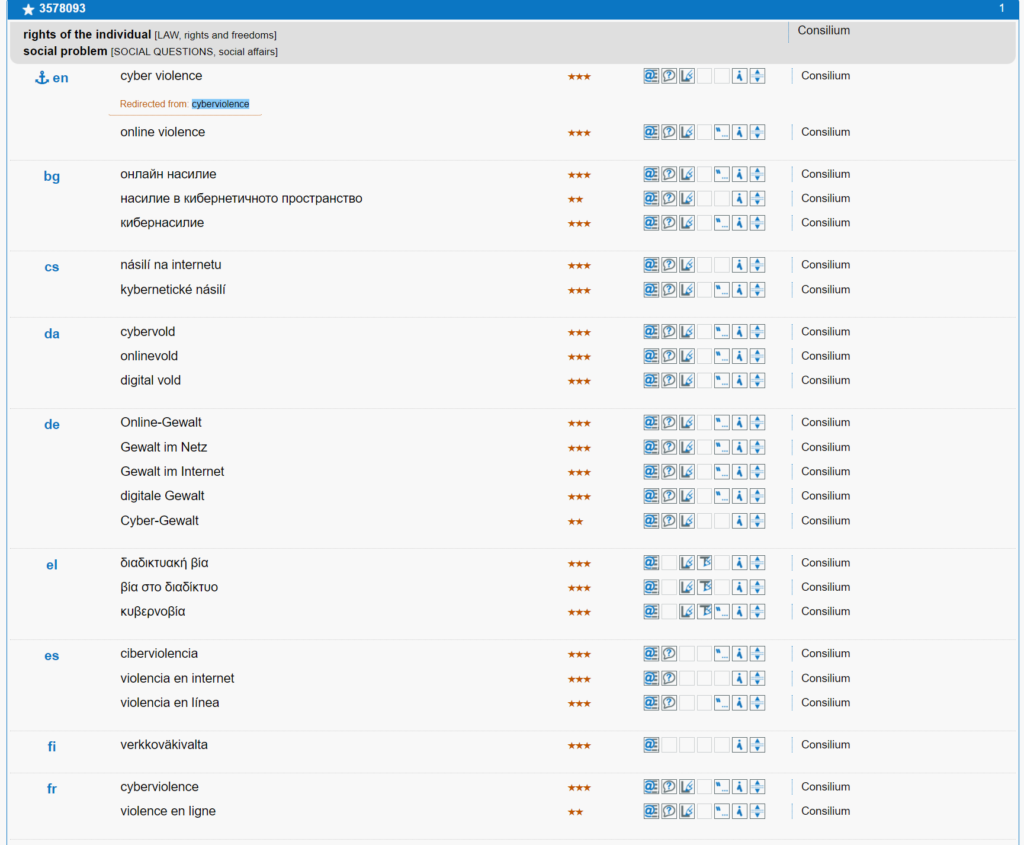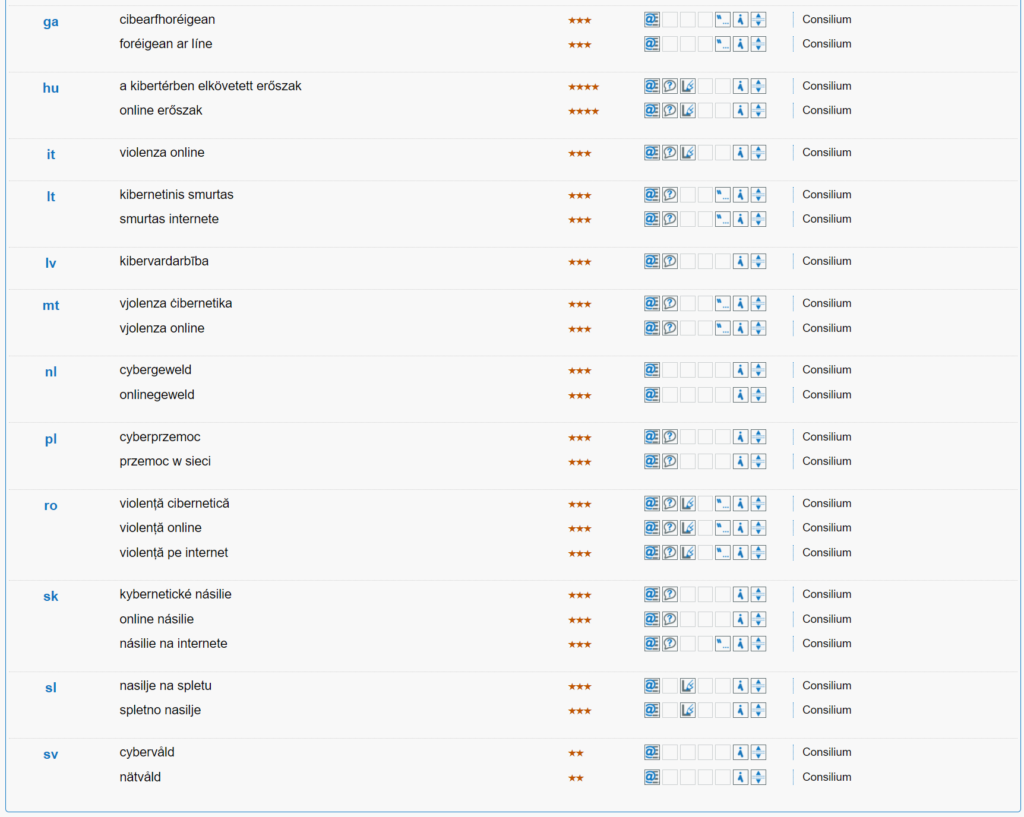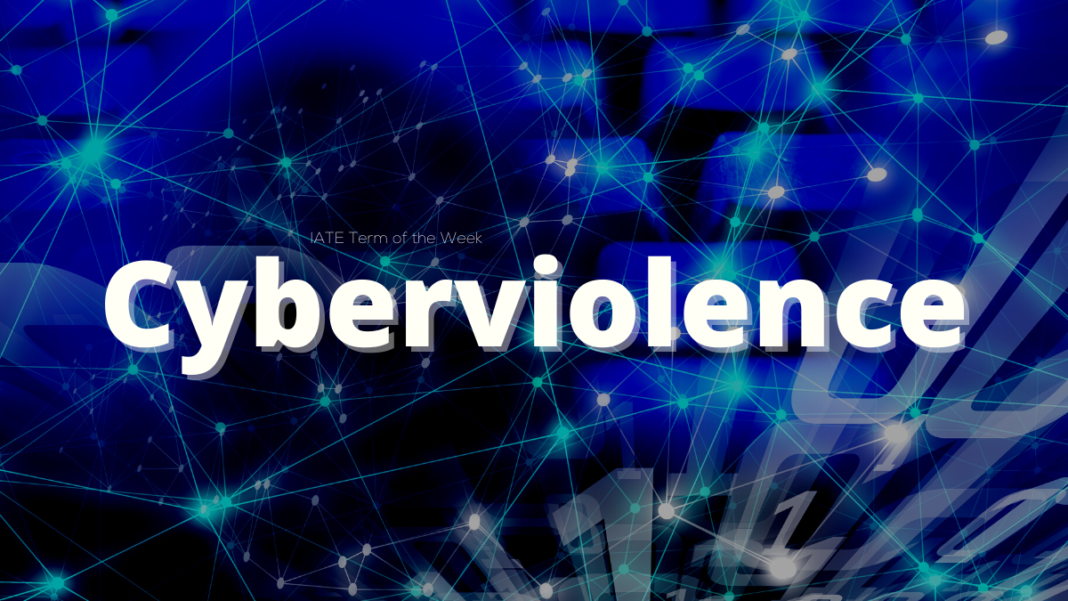If we break down the two compound words of cyberviolence, we can better understand its meaning: “cyber” – of, relating to, or involving computers or computer networks (such as the Internet)[1], and “violence” – intense, turbulent, or furious and often destructive action or force.[2] More concretely, however, the term cyberviolence refers to “violence that is perpetrated through electronic communication and the internet”[3] and it implies gender inequality in these types of harassment. Although there is no official and thorough data on gender-based violence, The European Institute for Gender Equality (EIGE) states that women are much more likely to experience it than men and with far greater and more harmful consequences.
What is Cyberviolence?
According to EIGE cyberviolence usually follows the same pattern as “real world” violence. In addition to that, there are also sub-categories of cyberviolence, such as “cyber stalking, non-consensual pornography (or ‘revenge porn’), gender-based slurs, hate speech and harassment, ‘slut-shaming’, unsolicited pornography, ‘sextortion’, rape threats and death threats, and electronically facilitated trafficking.” Access to messenger or social media accounts and their content, which is not approved by the law, is also considered as an act of cyberviolence.


Why deal with cyberviolence?
Although a relatively new societal phenomena, cyberviolence has seen a rapid rise due to the growing usage of internet and social media platforms. The European Institute for Gender Equality reports that one in ten women older than 15 years has experienced a type of cyberviolence at least once.
Earlier this year, in her State of the EU address Commission President von der Leyen stated that until the end of 2021 the Commission would propose a law to fight violence against women “from prevention to protection and effective prosecution, online and offline”[1]. The European Parliament called for establishing a common legal framework under EU Law and harmonisation of the existing legislation that will define minimum guaranteed sanctions in all Member States against offenders. Cyberviolence and the need to have a common legal basis for protection of women against this type of harassment is on the European Parliament’s agenda this week.
Reference:
1. Cyber Definition & Meaning – Merriam-Webster. 2021. [ONLINE] Available at: https://www.merriam-webster.com/dictionary/cyber. [Accessed 02 December 2021].
2. Violence Definition & Meaning – Merriam-Webster. 2021. [ONLINE] Available at: https://www.merriam-webster.com/dictionary/violence. [Accessed 02 December 2021].
3. EIGE. 2021. cyber violence against women and girls | European Institute for Gender Equality. [ONLINE] Available at: https://eige.europa.eu/thesaurus/terms/1484. [Accessed 02 December 2021].
4. EIGE. 2021. Cyber violence is a growing threat, especially for women and girls | European Institute for Gender Equality. [ONLINE] Available at: https://eige.europa.eu/news/cyber-violence-growing-threat-especially-women-and-girls. [Accessed 02 December 2021].
5. European Commission – European Commission. 2021. Press corner | European Commission. [ONLINE] Available at: https://ec.europa.eu/commission/presscorner/detail/en/SPEECH_21_4701. [Accessed 02 December 2021].
6. Gender-based cyberviolence: MEPs demand harmonised sanctions and victim support | News | European Parliament. 2021. Gender-based cyberviolence: MEPs demand harmonised sanctions and victim support | News | European Parliament. [ONLINE] Available at: https://www.europarl.europa.eu/news/en/press-room/20211124IPR18012/gender-based-cyberviolence-meps-demand-harmonised-sanctions-and-victim-support. [Accessed 02 December 2021]. 7. Cyberviolence. IATE Search. 2021. [ONLINE] Available at: https://iate.europa.eu/search/result/1638449330142/1 [Accessed 02 December 2021].
[1] European Commission. 15.09.2021. State of the Union.
[1] Cyber Definition & Meaning – Merriam-Webster. 2021.
[2] Violence Definition & Meaning – Merriam-Webster. 2021.
[3] Cyberviolence. IATE Search. 2021.

She holds degrees in both Public Relations and European Governance. Currently, Daniela is combining her passion for communications and social media with her interest in the work of European institutions.

